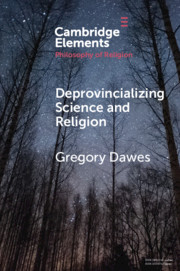Refine search
Actions for selected content:
1 results

Deprovincializing Science and Religion
-
- Published online:
- 23 February 2021
- Print publication:
- 11 March 2021
-
- Element
- Export citation
